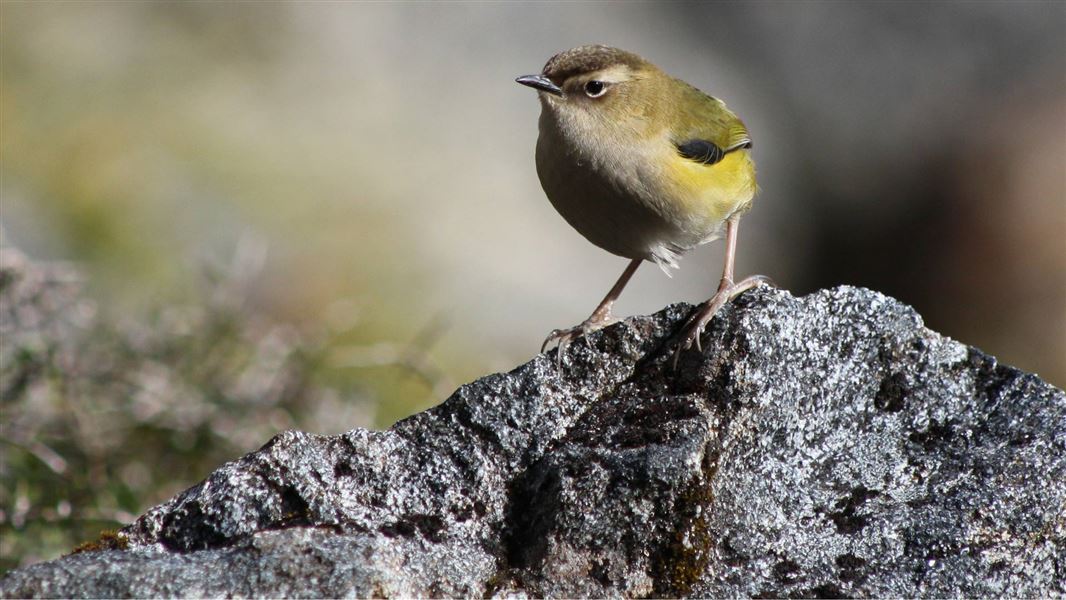
Introduction
A small and reclusive bird, rock wrens are restricted to pockets of the South Island’s high country.Population: Unknown
Conservation status: Threatened–Nationally Endangered
Found in: Alpine and sub-alpine habitats along the Southern Alps and within Kahurangi National Park, in the South Island
Sound recordings:
Rock wren call (MP3, 248K)
00:02 – Rock wren contact call.
Rock wren call (MP3, 3,411K)
01:49 – Rock wren chicks begging.
Species information: Rock wren on NZ Birds Online
Rock wren conservation
Rock wrens are our only true alpine bird. It is unknown how they survive the harsh climate above the tree line all year round, but it is likely they continue to forage on rocky bluffs where snow has not collected and amongst large boulder fields. Some have suggested they may have a period of semi-hibernation.
Did you know?
A rock wren nest can be as warm as 30 degrees, when outside it is below freezing!
Climate change and weather events
Climate change is anticipated to affect rock wrens in the future. As the temperature warms, their alpine environment becomes more suitable for potential predators, such as rats.
Extreme snow fall events have also caused rock wren nest failures.
Stoats are main predators
Rock wrens are poor fliers. They nest on the ground and are easy targets for introduced predators.
Until recently, it was assumed rock wrens were relatively safe from predators in their alpine habitat. However, rock wrens are now absent or very rarely seen in many areas where they were once commonly found.
Researchers using nest-cameras have identified stoats as the main predator of rock wrens.
Predator control and monitoring
We have been monitoring rock wren nesting success at several alpine locations throughout the South Island within Fiordland, South Westland and Kahurangi National Parks.
In areas where there is predator control, around 85% of nests are successful in fledging young. In areas where there is no predator control, nesting success is 0 – 30% and populations are at risk of extinction.
We are currently developing methods of predator control targeted specifically to protect rock wrens. Between 2008 and 2011, 41 rock wrens were transferred from the Murchison Mountains, Fiordland to Secretary Island, a largely predator free island with sub-alpine habitat in Fiordland. Rock wrens are now breeding well on Secretary Island.
You can help
- Help the New Zealand Alpine Club, Routeburn Dart Wildlife Trust and Friends of the Cobb, who are carrying out predator control in accessible rock wren habitats.
- Report sightings of rock wrens to your local DOC office or to iNaturalist NZ – Mātaki Taiao.